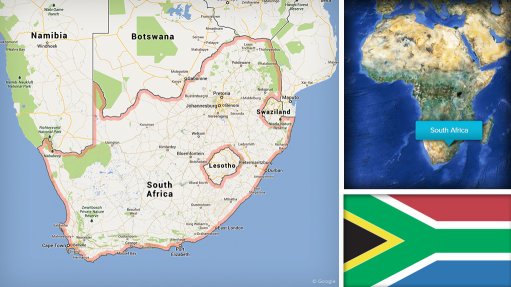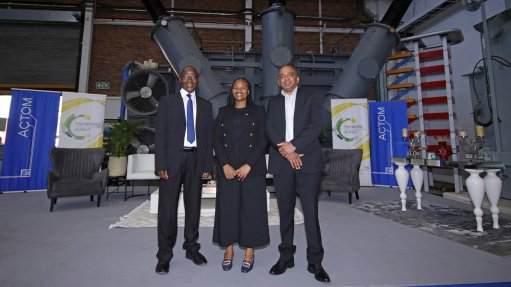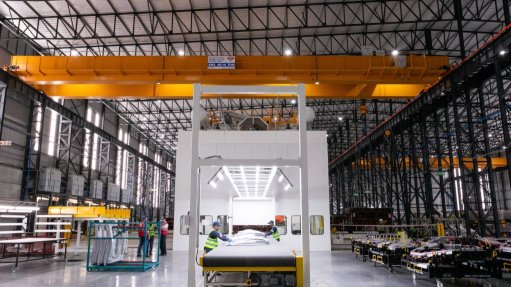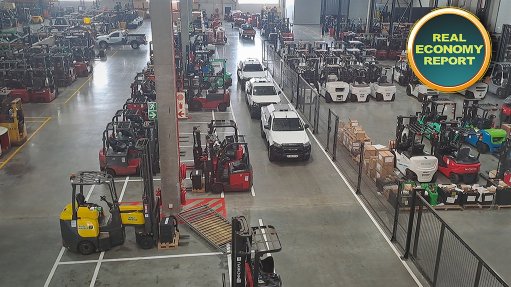Expanding horizons in agriculture
This article has been supplied.
With nearly half of South Africa’s youth currently unemployed, the agriculture sector presents a growing – yet often misunderstood – opportunity. Far from the traditional image of farming, today’s agricultural labour market is increasingly diverse and technology-driven, offering career paths in agritech, data analytics, logistics, and laboratory research.
This is according to Edna Laubscher, Quality Manager and Laboratory Specialist at Omnia, who believes that agriculture is too often viewed through a narrow lens – one that equates the entire sector with traditional farming or primary food production.
“While primary production remains essential, these roles represent only a fraction of what modern agriculture actually involves,” says Laubscher. “Our sector is continually evolving and offers a far wider range of career opportunities, many of which don’t require land ownership or a rural background.”
This shift opens the door for a new era of agricultural professionals – the soil analyst interpreting nutrient profiles to inform better planting decisions; the software engineer developing irrigation scheduling apps; the logistics planner coordinating temperature-controlled exports; the laboratory scientist that develops products and ensures process optimisation; or the environmental scientist monitoring carbon impact across the supply chain.
“These are not distant opportunities; they’re already here,” insists Laubscher. “The challenge is making them visible and accessible to young people.”
The employment landscape among South Africa’s youngest job seekers is particularly alarming as the unemployment among youth aged 15-24 has risen by more than 10%. In contrast, employment figures in the agriculture sector remain resilient, having increased in the first quarter of 2025.
While agriculture’s growth is not uniform across the country, certain provinces offer clear entry points for youth participation. The Western Cape currently leads the way with 244 100 agricultural jobs, representing 26% of national agricultural employment. Mpumalanga and KwaZulu-Natal follow with 138,124 (15%) and 131,515 (12%) jobs, respectively.
These regional hubs are ideal starting points for youth-focused skills development in post-harvest handling, environmental monitoring, agricultural logistics, and compliance. Tailoring training and employment programmes to provincial strengths could fast-track more meaningful placements and align job creation efforts with local economic ecosystems.
However, for agriculture to truly absorb and empower more young South Africans, skills development must go beyond conventional training, says Laubscher. “Yes, there is still a place for technical agricultural colleges and extension programmes, but there is also growing space for coding bootcamps, STEM mentorship, lab technician training, and digital literacy courses, all tailored to agri-sector applications”
This also means bridging the gap between education and employment. Laubscher believes that more internship programmes, work-integrated learning placements, and partnerships between industry and academia are needed to give young people a real entry point into the value chain. “In our own experience in laboratory services, we’ve seen how exposure to agricultural research and quality testing opens students’ eyes to career possibilities they hadn’t considered – or even heard of – before.”
Youth Month is a chance to challenge old perceptions and expand horizons by inviting young people into a sector that is not only vital, but full of purpose and possibility. “The onus is on all of us – government, industry, academia, and experienced professionals – to showcase these opportunities, open doors, and ensure that agriculture is positioned as a future-proof sector,” concludes Laubscher.
Article Enquiry
Email Article
Save Article
Feedback
To advertise email advertising@creamermedia.co.za or click here
Comments
Press Office
Announcements
What's On
Subscribe to improve your user experience...
Option 1 (equivalent of R125 a month):
Receive a weekly copy of Creamer Media's Engineering News & Mining Weekly magazine
(print copy for those in South Africa and e-magazine for those outside of South Africa)
Receive daily email newsletters
Access to full search results
Access archive of magazine back copies
Access to Projects in Progress
Access to ONE Research Report of your choice in PDF format
Option 2 (equivalent of R375 a month):
All benefits from Option 1
PLUS
Access to Creamer Media's Research Channel Africa for ALL Research Reports, in PDF format, on various industrial and mining sectors
including Electricity; Water; Energy Transition; Hydrogen; Roads, Rail and Ports; Coal; Gold; Platinum; Battery Metals; etc.
Already a subscriber?
Forgotten your password?
Receive weekly copy of Creamer Media's Engineering News & Mining Weekly magazine (print copy for those in South Africa and e-magazine for those outside of South Africa)
➕
Recieve daily email newsletters
➕
Access to full search results
➕
Access archive of magazine back copies
➕
Access to Projects in Progress
➕
Access to ONE Research Report of your choice in PDF format
RESEARCH CHANNEL AFRICA
R4500 (equivalent of R375 a month)
SUBSCRIBEAll benefits from Option 1
➕
Access to Creamer Media's Research Channel Africa for ALL Research Reports on various industrial and mining sectors, in PDF format, including on:
Electricity
➕
Water
➕
Energy Transition
➕
Hydrogen
➕
Roads, Rail and Ports
➕
Coal
➕
Gold
➕
Platinum
➕
Battery Metals
➕
etc.
Receive all benefits from Option 1 or Option 2 delivered to numerous people at your company
➕
Multiple User names and Passwords for simultaneous log-ins
➕
Intranet integration access to all in your organisation


















